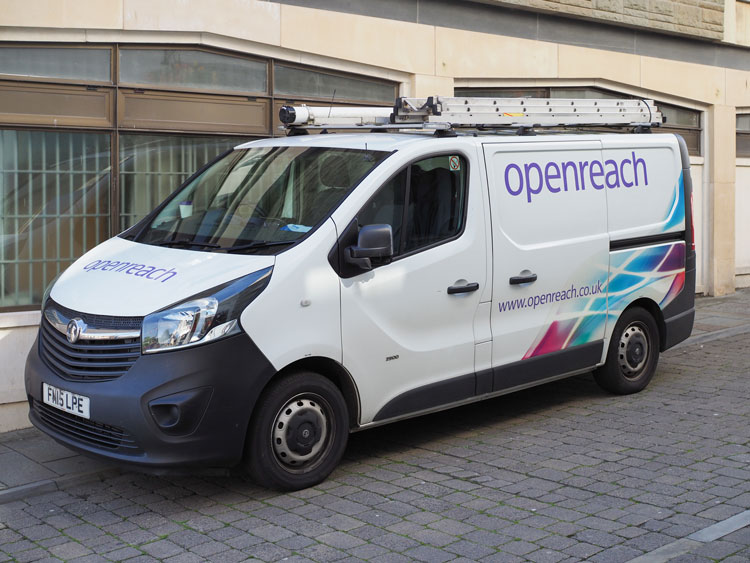Full Fibre Would Boost UK Economy by £59 Billion, Openreach Says

Connecting every British premise to a full-fibre broadband network by 2025 would deliver a £59 billion boost to the UK economy, Openreach has said.
This would be the equivalent of a £1,700 increase in productivity per worker.
That includes a £4.6 billion uplift to the Scottish economy and £2 billion and £1.3 billion boosts to Wales and Northern Ireland, respectively.
That’s according to new report commissioned by Openreach, owner of much of the UK’s broadband infrastructure, and completed by the Centre for Economics & Business Research (CEBR). The report models the productivity boosts delivered by a full-fibre rollout completed in either 2025, 2028, 2030 or 2033.
In addition to the £59 billion productivity increase, rising to £70 billion by 2038, the increased connectivity delivered by full-fibre would bring 500,000 people back into the workforce and enable 270,000 people to work from rural areas. Meanwhile, 400,000 more people could work from home, saving 300 million commuting trips and reducing the distance travelled by cars by three billion kilometres.
The report found that slower rollouts, completed by the later dates, would ultimately deliver the same impacts, although at a slower pace.
Openreach itself has connected 1.8 million homes and businesses to its full-fibre network and is scheduled to reach a total of four million by March 2021.
It eventually aims to connect 15 million premises, while alternative network providers are targeting 15.96 million.
The National Infrastructure Commission (NIC) has previously estimated that it will cost £33.4 billion to build a national full fibre network, mostly from private investment. However, network operators have cautioned that public money will be needed to reach the last 10% of premises, where connection costs could rise as high as £4,000 per household.
Last week, the government committed £5 billion to help connect those living in the “last 20%” of premises to gigabyte-capable service, although that doesn’t necessarily mean a fixed-line full fibre connection.
However, Openreach has cautioned that regulation and business rate taxation on fibre infrastructure are limiting private investment, slowing down the rollout and jeopardising the government’s full-fibre timeline. Openreach is calling for an extension of the business rates holiday on new fibre networks, easier access to blocks of flats and local authority buildings, and more efficient streetworks, including collaboration with other utility providers, during installation.
Openreach CEO Clive Selley said: “Full fibre is a vehicle to turbocharge our economy post-Brexit, with the power to renew towns and communities across the UK.
“We’re currently building full fibre to around 22,000 premises a week– which is one every 28 seconds. But we want to go even faster and further – to 15 million premises and beyond if we can get the right conditions to invest.
“With the right policies and regulation, we can build a better, more reliable broadband network faster than any other country in the world and unlock the benefits for the whole UK.
“If that doesn’t happen, then many people will be locked out of a more connected future and the UK could lose its status as a global digital leader.”
Read on our blog

With the government poised to implement tough new measures to...

Budget broadband provider TalkTalk has been notifying customers via email...

A year-long investigation by charity Citizens Advice has revealed a...

Education Secretary Nadhim Zahawi has announced a new commitment to...
